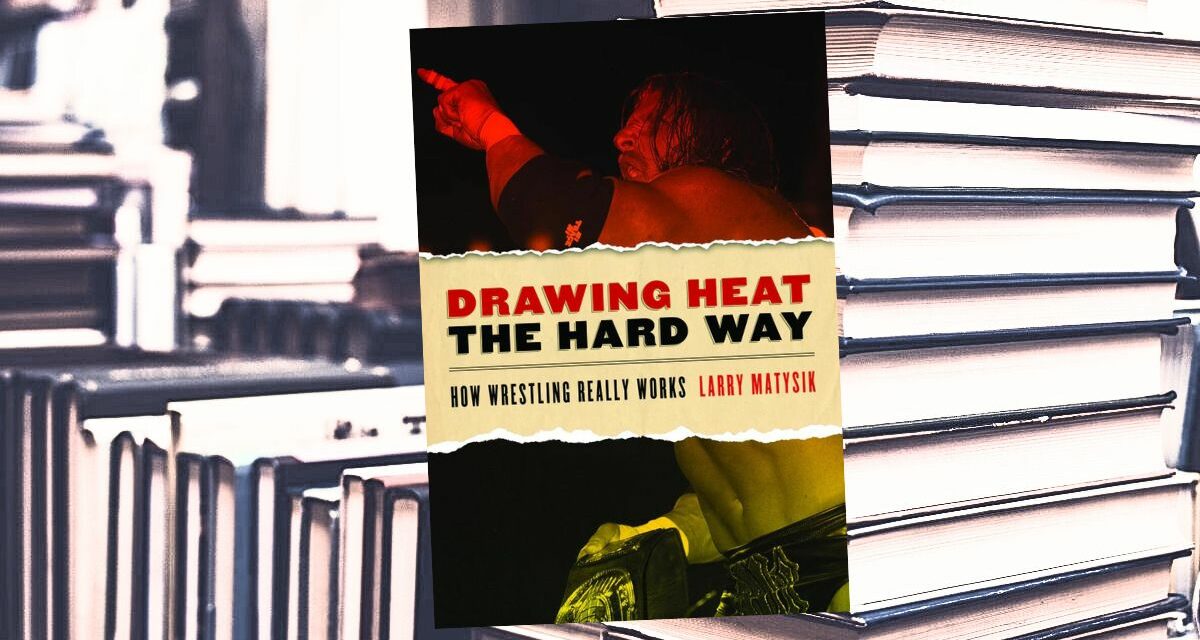Larry Matysik’s third book, Drawing Heat the Hard Way: How Wrestling Really Works, includes a quote from the movie My Favorite Year: “So what if it is an illusion? It works.” This serves as Matysik’s central idea for this text. The book is a philosophical text about the underlining principles of professional wrestling. Matysik draws from not only his lengthy experience in wrestling, more on that later, but also modern, at the time, wrestling. Published in 2009 by ECW Press, it is a recommended read for any interested in, as the book’s subtitle states, how wrestling really works.
It was a full life in professional wrestling for Matysik, who died in 2018. Most famously, Matysik worked with Sam Muchnick, the longtime St. Louis promoter. Muchnick, more importantly, spent decades as the president of the NWA. Muchnick managed to maintain 30-40 promotions under the NWA banner for decades, not a small feat considering the number of roughhousers, con artists, and wildmen involved in the sport (credit to Jon Langmead for the description). Muchnick is considered one of the most distinguished figures in wrestling history for his work in St. Louis and as NWA president.
It was under this learning tree that Matysik received his education in professional wrestling. He saw wrestling presented like a sport. To the point that the St. Louis promotion was well-regarded within the sporting community. While some of the tenets of pro wrestling continued when Vince McMahon swept in and upset the entire industry, including St. Louis, Matysik makes it clear the difference in philosophy and presentation. In fact, a substantial portion of the book is spent on differentiating between the two and on his strained, at best, relationship with McMahon.
Matysik makes it clear that, while he had a good relationship with McMahon, he was bitter and angry over what McMahon did to the industry and to St. Louis. There is a whole chapter of the book about Vince. Matysik did, for a time, work for McMahon and the WWF. In describing his complicated relationship with McMahon, Matysik wrote:
When “the evil WWE Chairman” raves on RAW about breaking people, it is hard not to remember that he really has. I will never forget what McMahon told me more than 25 years ago. “Wrestling is a rotten business, with rotten people, and the only way to succeed is to be more rotten than the other guy.”
The section about Vince is the longest in the book and, while it is interesting, Matysik does ramble on a bit too long. This was the one place where I just wanted it to be over and would advise that you could skip over it. Matysik mentions McMahon many times throughout the book and the point is made more succinctly elsewhere.
There are several sections where Matysik digs deeper into booking philosophy that I found to be the strength of the book. Specifically, Booking 101: Does it Draw? and Booking 102: What’s Good for the Business is Good For _. Many of the ideas he speaks about, Triple H is using as he guides WWE to a renaissance. This is not as true with AEW, which has fallen away from much of the pro wrestling philosophy that has been assessed for the past 125 years.
Such nuances as building a major card are explored here. Referring to the undercard as “supporting matches” he describes how these bouts not only build to the main event, but also begin building those underneath wrestlers to see who the next breakout star might be. This means restraining the underneath wrestlers from excessive kicking out of finishes. Or brawling. Or doing anything that would overshadow the reason the fans paid to see the show, the main event.
There are many other examples of the booking tenets that I could describe here. While he does go into detail about these, and it would serve any modern booker to read this book, I left wanting more. I would have loved to read Matysik go into more detail about the St. Louis promotion and how it was booked. In fact, the chapter on Vince could have been taken out and replaced with a deeper dive into St. Louis.
Overall, though, I recommend this book to anyone who is working as a booker or fans who want to understand pro wrestling philosophy. This is not a book for the public to enjoy, but for those of us who obsess over this business, it should be on our list.
NOTE: The legacy of Larry Matysik lives on with the SICW Fanfest, a massive collection of wrestlers for St. Louis, running on Saturday, May 18; it includes the annual induction into the St. Louis Wrestling Hall of Fame. (Details here.)
RELATED LINKS
- Larry Matysik story archive
- Buy Drawing Heat the Hard Way: How Wrestling Really Works at Amazon.com or Amazon.ca
- SlamWrestling Master Book List


